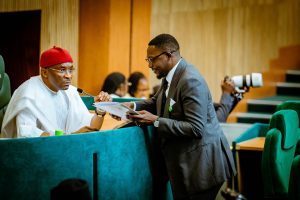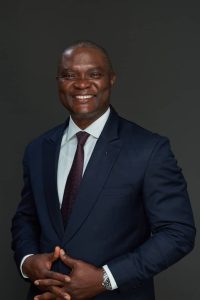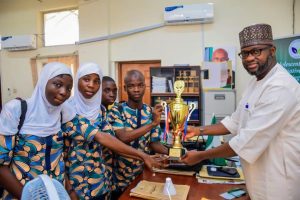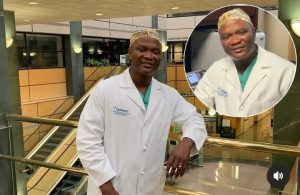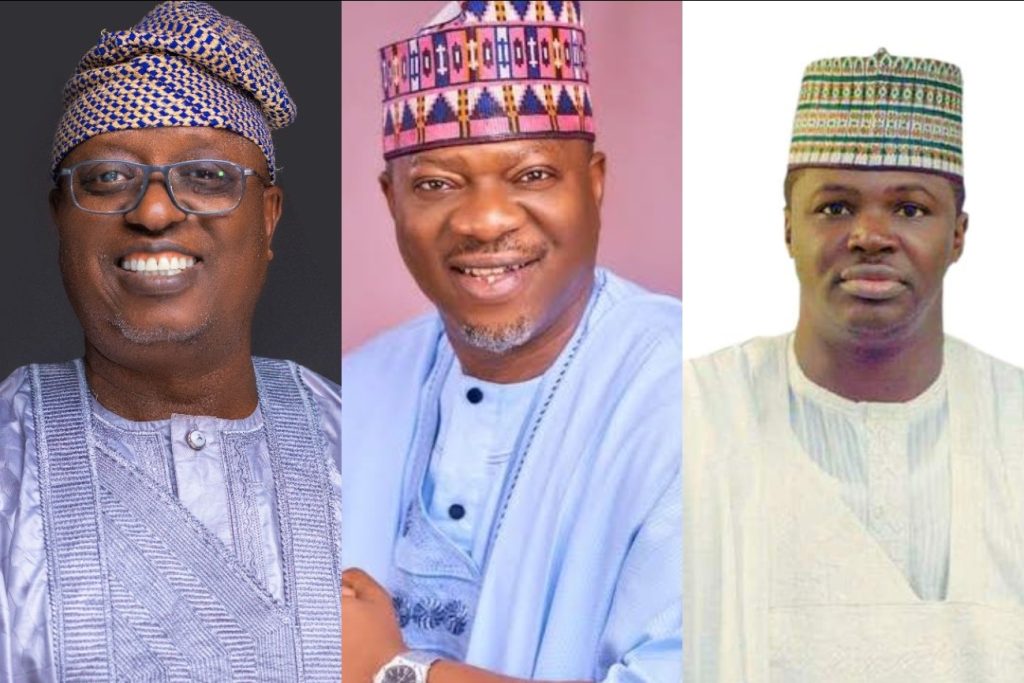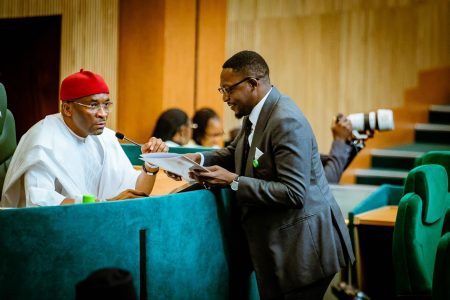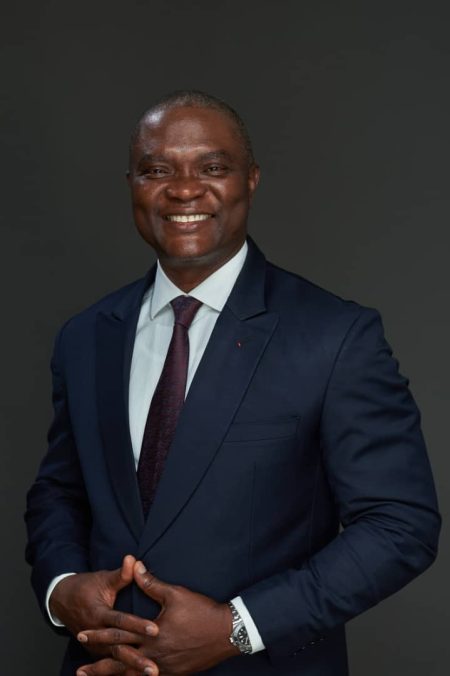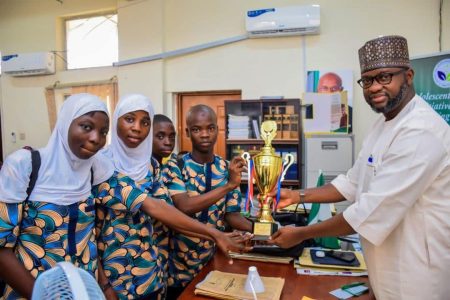“The price of good governance is public attention.” That may not be a common slogan, but in a place like Kwara South, it rings with quiet truth. The people are watching, not out of anger or distrust, but out of love. Love for progress. Love for the land that raised them. Love for the promises made at every campaign stop, in every handshake and every manifesto.
Now in the sixth month of 2025, the journey of representation is well underway. Elections are still two years ahead, yet questions are already stirring among constituents, not with agitation but with curiosity. How far have we come? What voices are truly echoing for Kwara South in the chambers of power?
Senator Oyelola Yisa Ashiru has remained a familiar name in national conversations. As Deputy Senate Leader, he represents not just his district but the moral weight of Kwara South’s aspirations. His efforts have touched several corners of the region—from sponsoring the upgrade of the Federal Polytechnic Offa into a full university, to initiating road rehabilitation and installing solar-powered boreholes in underserved communities like Osi-Ekiti and Eruku. His hands have also reached into classrooms, health centres and farmlands. Schools in Etan and Ejiu-Ile have benefited from new blocks of classrooms. Farmers in Ekiti received fertilizer support. In places like Obbo-Ile, solar streetlights have improved security and mobility at night. There’s also been healthcare outreach, equipment donations, and consistent calls for unity among political actors in the region.
These efforts haven’t gone unnoticed, but citizens quietly yearn for more visible feedback loops. Regular town halls. Public updates. An occasional statement to say, “Here is what we are doing—and here is what’s next.”
For Hon. Tijani Kayode Ismail, representing Offa/Oyun/Ifelodun Federal Constituency, his journey in the 10th Assembly has perhaps been less highlighted in the media, yet the constituents of Offa, Oyun, and Ifelodun keenly observe his contributions. While specific visible updates on motions, key committee engagements, or youth-focused programs are yet to be widely publicized, the community is not demanding, but rather extending an invitation for more transparency. They yearn to truly hear their voice echoing distinctly from Abuja, expecting their representative to vigorously advocate for the federal attention and resources crucial for their vibrant communities.
Hon. Raheem Tunji Olawuyi, widely known as Ajuloopin, has remained active across his constituency. His donations of medical equipment to Omu-Aran General Hospital, ECWA Hospital, and support for people with special needs have drawn commendation. He’s been seen sponsoring scholarship programs and youth sports competitions, and his town hall on constitutional review has been praised as a democratic gesture that brought people into the conversation. With his role as Chairman of the House Committee on Emergency and Disaster Preparedness, his influence cuts across policy and welfare. Constituents in Ekiti, Isin, Irepodun, and Oke-Ero have acknowledged his presence, but still hope that such presence can continue with deeper grassroots reporting and more deliberate listening.
Another growing concern, that is not an accusation, revolves around insecurity across parts of Kwara South. Recent reports from communities within Ifelodun, Irepodun, Isin, Ekiti, and Oke-Ero Local Government Areas have quietly surfaced, revealing a subtle but growing disquiet. Communities like Oreke-Okeigbo have tragically experienced attacks on mining sites, leading to abductions. In Oro and its environs, there’s been a troubling wave of kidnappings and banditry impacting residents and their livelihoods. Along highways in areas like Isanlu-Isin and near Obbo-Ayegunle, travelers have faced harrowing abductions. These aren’t just headlines; they are deeply personal realities for farmers, traders, and rural families whose lives are inextricably tied to stability. While the region is not overwhelmed by violence, stories of farmland incursions, theft, and occasional disruptions in market routes have become part of everyday conversations, signaling a profound impact on the sense of safety and well-being.
It’s important to note that none of these issues are unique to Kwara South, nor are they an indictment of current office holders. But the questions being raised are honest ones: what is being done at the federal and state levels to respond? Can more be done to engage with security agencies, support community policing structures, and push legislation or motions that improve rural safety?
Senator Ashiru, Hon. Ismail, and Hon. Olawuyi have the platforms, connections, and experience to spotlight these matters. This is not a charge of neglect, rather, it is an invitation to strengthen their advocacy, knowing full well that Kwara South, like any developing zone, cannot thrive without safety at its core.
This article is not a criticism. It is not a scoreboard or a press release. It is simply a mirror, held up by young people, market women, artisans, students, teachers, and elders alike, reflecting their wish to be kept in the loop.
In today’s Nigeria, governance is no longer about casting votes and walking away. Citizens are waking up to the fact that accountability begins the moment elections end. That is why questions are now being asked. What bills have our representatives supported since the start of the 10th Assembly? What motions have they moved? What committees are they serving on? What partnerships have they attracted back home?
The answers may exist. But when those answers don’t come to the people, they drift into assumptions, and assumptions grow into silence. The kind of silence that slows civic trust.
Kwara South does not ask for magic. It simply asks to be carried along. The region is blessed with capable leaders, but capacity must meet communication. And as development becomes more competitive across senatorial zones, visibility will matter just as much as performance.
2027 is not so far, but this is not about the next ballot. It’s about today. About how the people feel right now. Are they being seen? Are their challenges being voiced? Are they part of the process?
We still believe in our representatives. We still believe in their capacity to do more, show more, and say more. Because governance thrives best when leaders and people walk side by side, not in different directions.
This is a civic reflection, not an opposition statement. A reminder, not a resistance. And it comes from a place of honest concern and shared responsibility.
We are not against our leaders, we are standing with them, looking forward, and simply asking: what’s next for Kwara South?
Olawale Timothy
Isin Local Government, Kwara State
08039646872


